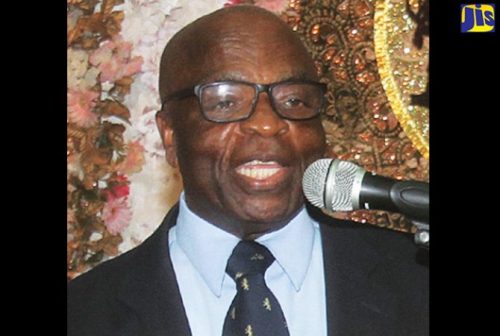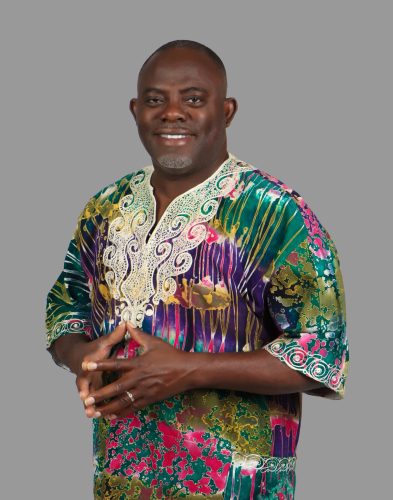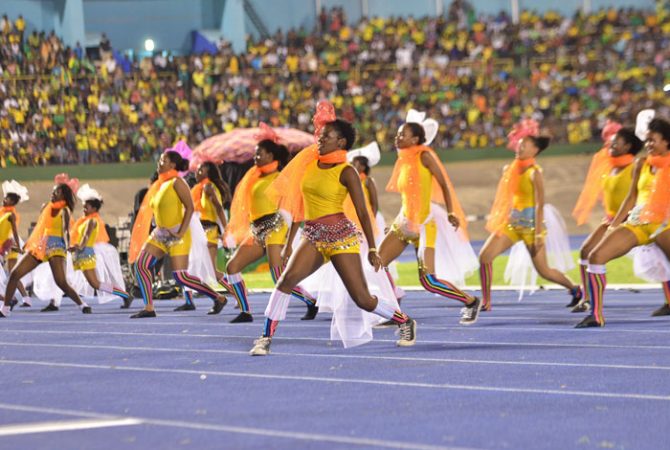Jamaicans Urged to Take Pride in The Culture
By: , July 15, 2022The Full Story
As Jamaica marks 60 years of Independence this year, citizens are being urged to embrace and take pride in the country’s dynamic culture and heritage.
Whether it’s music, dance, food, or art, Jamaica’s unique and vibrant culture continues to be a major force around the world and is a manifestation of the local saying “wi likkle but wi tallawah.”
Speaking in an interview with JIS News, Executive Director of the Institute of Jamaica (IOJ), Dr. Vivian Crawford, says “we need to think of our culture, not as something to be taken off a shelf at a supermarket”.
“It is a way of life that should be preserved and remind us that we should not be ashamed of ourselves,” he says.
Dr. Crawford notes that culture consists of the knowledge, beliefs, values, morals, art “or any other capability acquired by man as a member of society”.

“So, each step of the journey is [to be] preserved because it’s from each step that we are going to learn where to go for the next,” he says, while encouraging citizens to take note of the stories that helped to shape the culture.
Citing language as a key aspect of the culture, Dr. Crawford says he is pleased with the acceptance of the Jamaican creole.
The colourful language, which reflects the influences of the country’s diverse ethnic make-up, was once frowned upon by the upper classes as the language of the poor and uneducated.
It has evolved to become mainstream, used not only in popular music, but in film, plays, published works, on radio and television and in the social media space.
“In my time you were punished if you spoke our own language,” Dr. Crawford says, noting that like many other Jamaican children he was taught to discard patois in favour of standard English.
He says, however, that it is vital that children embrace their country’s spoken language and not be ashamed of it. It is the way by which people communicate with one another, build relationships, and create a sense of community.
Dr. Crawford also expresses pleasure that the promotion of Jamaican food and music continues to thrive globally.
“Our jerk is international and our music, of course, Bob Marley put that music on the map…so our name has gone abroad,” he says.
Turning to the visual arts, Dr. Crawford notes that while Jamaica enjoys a rich tradition in this area, there needs to be greater interest in art, particularly among children.
“Art deserves more attention…I’m begging for that to be on the agenda. I’m begging that schools have, at the end of the academic year, an art exhibition,” he says, while encouraging families to visit the National Gallery, which regularly mounts art exhibits.
Dr. Crawford referenced British artist, Hurvin Anderson, born to Jamaican parents in Birmingham, England, who sold his art pieces at an auction house for US$10.6 million in 2021.
“Hurvin said his mother, when he was a child, pasted most of the pictures he took on the wall. Our Jamaican people do not have the art of our children placed on the wall, we don’t collect it,” he says.
Meanwhile, Dr. Crawford notes the critical role of the Jamaica Cultural Development Commission (JCDC) in preserving the culture.
The agency, established in 1963 as the Festival Office of Jamaica, has evolved into a burgeoning force in developing and promoting the creative talents and expressions of the Jamaican people.
While the 1962 Independence festival celebrations laid the groundwork for the setting up of the JCDC, the entity has its roots in the elocution and creative arts contests from as early as 1897, and the village gatherings in the 1930s, where people would stage plays and engage in traditional dances, among other things.

Mr. Crawford tells JIS News that during the war years (1939 to 1945), persons would gather at the Port Antonio Methodist Church in Portland, to listen to news on the radio from England.
“So, they listened each night and then before the news would come over, they did a little singing, somebody would recite, and it merged into the culture [and brought forth] the Portland Festival,” he informs.
These gatherings evolved into parish and national competitions held in Kingston, and the introduction of a bandwagon, which took popular entertainment to the people at street corners and in the villages.
It was under the leadership of then Prime Minister, the Most Hon. Edward Seaga that the Festival Office was established to coordinate and ensure the continuation of these and other festivities, including the special activities for Independence in 1962.
In 1968, the Festival Office evolved into the Festival Commission and become the JCDC by an act of Parliament in 1980.
“If that had not been done, we would have lost tonnes of our heritage. We would have lost all the Jamaican folk songs,” Dr. Crawford says.
For his part, Senior Lecturer and Director at the Institute of Caribbean Studies at the University of the West Indies, Mona (UWI), Dr. Dave Gosse, says that as the nation’s culture evolves, it should not lose its true meaning.

“Culture evolves…so, what it was in the past, is not necessarily what it will be in the present. It takes new shape, and form [and] if persons don’t really understand [the roots] it will become far more commercial,” he points out.
He is urging Jamaicans to see cultural representations “as more than entertainment,” noting that culture can also be marketable and provide increased job opportunities.
“Whether through film, documentaries, or cuisine, we can market what we have because the new economy today is not one in which you graduate from a university and you go get a job. You have to create your own jobs,” he says.
The IOJ, established in 1879, is the agency of Government responsible for the promotion and preservation of the country’s cultural heritage.
It includes the National Library, African Caribbean Institute of Jamaica, National Museum of Jamaica, Natural History Museum of Jamaica, the Junior Centres, Liberty Hall, the National Gallery of Jamaica, and the Jamaica Music Museum.
The Institute of Caribbean Studies at UWI offers a variety of courses all aimed at deepening the understanding of Caribbean culture and history.
Jamaica 60 is being observed under the theme: ‘Reigniting A Nation for Greatness.’




